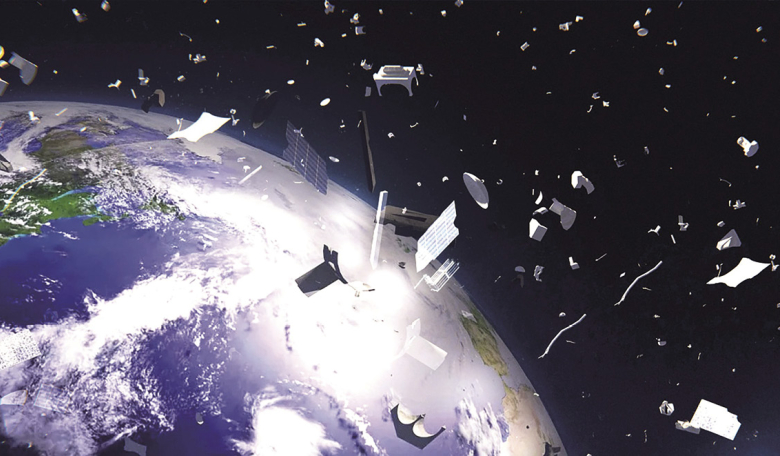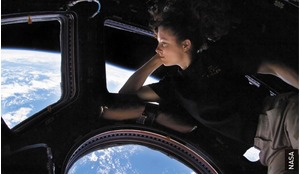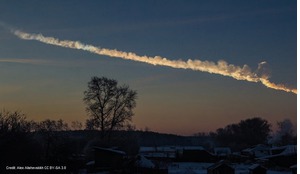If outer space is to be maintained as a global common and used in a sustainable manner then global space laws need drastically extending and refining because current legal systems governing space exploration are far from comprehensive. They fall a long way short of what is needed today, particularly when compared to other spheres such as maritime law. Here, Professor Kai-Uwe Schrogl, President of the International Institute of Space Law (IISL), assesses the current state of play and addresses the challenges faced by the international law-making community to create a system to support and police a truly sustainable space-faring future for humanity.
Lawyers - and space lawyers are no exception - tend to be systematic individuals; they find it useful to have a framework within which to understand what they can do and in which direction they can do it. Thus, we organise legal and regulatory efforts for space on two distinct levels: the international level and the national level. At the same time, we also operate in two dimensions - governmental and non-governmental - and have two ‘depths’ or degrees of law which we know as binding law and regulation, and non-binding ‘soft’ law.
In effect, this forms a putative architecture for space law and regulation. Indeed, there are two areas and organisations that illustrate how such architecture works particularly well: the International Telecommunication Union (ITU), which regulates international frequency coordination and geostationary orbital slot allocation, and the International Civil Aviation Organization (ICAO) which is responsible for civil aviation and air traffic in particular.
lWe have to ensure that the long-term sustainability of space is actually implemented through Space Traffic Management
Despite this, we don’t actually have a real comprehensive ‘architecture’ for law and regulation for space, and this becomes increasingly evident the more one investigates the field. In space law, we have established principles governing the status of outer space (in particular the freedom of use of outer space, non-appropriation of space, state responsibility and liability) and they shall not be touched.
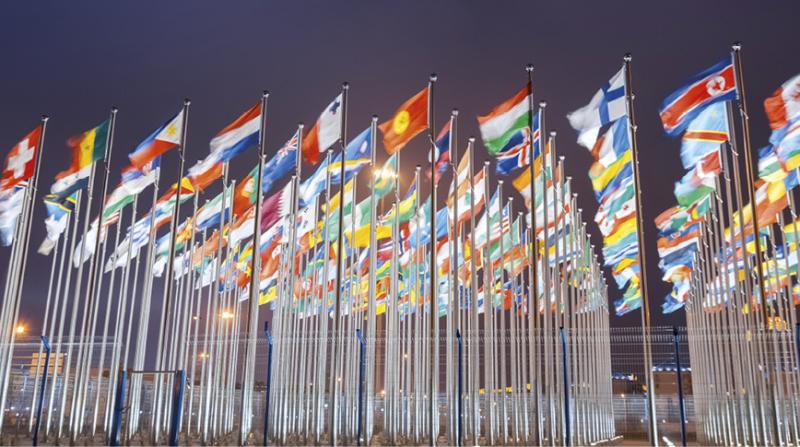 The key principles of the concept of global commons are freedom of use and non-appropriation.
The key principles of the concept of global commons are freedom of use and non-appropriation.
What we now need are precise and operative norms and rules for the behaviour of all actors in outer space. For this reason, space lawyers are working to establish at least the ‘building blocks’ for this architecture and are open to any ideas that will help to support this structure, including from adjacent areas such as aviation or maritime traffic.
There are a number of concrete efforts underway, in particular in the scope of the efficient management and implementation of long-term space sustainability as developed within the United Nations (UN) framework, which can be regarded as proto-regimes for the required new architecture.
First of all, despite great efforts, it is important to realise that we do not have a binding framework for orbital debris mitigation. Although we have some useful guidelines adopted by the UN Committee on the Peaceful Uses of Outer Space (UN COPUOS) in 2010, they are not enough; we need really binding provisions rather than guidelines and this is where the discussion on the future potential of enforceability becomes relevant. In this context, we now have a few unilateral moratoria on anti-satellite (ASAT) tests and they should be extended and also become binding.
Space debris regulation
It is important to realise that we do not have, but need a comprehensive and binding framework for orbital debris mitigation and removal
Furthermore, we have to decide and agree on how debris removal should be seen from the legal and regulatory perspective, which is a very touchy and difficult subject because it also relates to security considerations and dual-use elements. Ultimately, however, we have to ensure that the long-term sustainability of space is actually implemented.
Arguably, the first phase of this effort is embodied within the current discussion in the United States and Europe on space traffic management (STM), but we need to conceptualise it for the international level and then scale it down to decide what to do at a national level.
At the moment, we have a system of industrial best practice and best practice by non-governmental actors, which immediately implies that this is not binding international law. Of course, the space industry, satellite operators and all non-governmental actors have to be part of any future architecture, so it is important to include them at an early stage.
International space law treaties impose a variety of - often ignored - obligations on individual States with regards to space activities under their jurisdiction. Effectively, they have to be translated into national space laws, but only around one out of seven Member States of the UN and less than half of the European Space Agency (ESA) Member States have such national authorisation laws, so that has to be resolved.
Indeed, these laws have to govern not only the authorisation of activities, but also their supervision. This is particularly relevant to space traffic management, because it will require the continuous supervision of operators in the respective States.
In fact, the International Institute of Space Law (IISL - see Panel) has produced a statement on exactly that topic, which addresses this imperative in a more open and clearer way than the diplomatic language of UN Member States would allow.
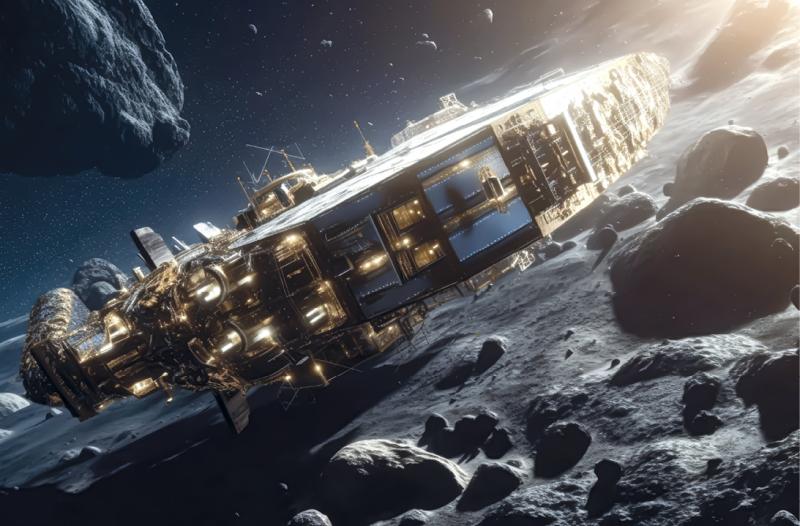 Space mining: when it comes to the exploration and use of space, the Outer Space Treaty says that space is the province of all mankind and is not subject to national appropriation by claim of sovereignty, by means of use or occupation, or by any other means but it leaves it to the Moon Agreement to set out an International Regime for commercial uses of resources from the Moon and other celestial bodies.
Space mining: when it comes to the exploration and use of space, the Outer Space Treaty says that space is the province of all mankind and is not subject to national appropriation by claim of sovereignty, by means of use or occupation, or by any other means but it leaves it to the Moon Agreement to set out an International Regime for commercial uses of resources from the Moon and other celestial bodies.
A level playing field
Sustainability has not only to be achieved in Earth orbit, but also for any exploration and resource exploitation that might occur on the Moon or on asteroids
Of the issues and challenges that the space community faces today, sustainability is among the most important. Firstly, apart from the goal of making space activities generally sustainable, we have to ensure that this is done in terms of a level playing field that allows all actors to succeed commercially. So, the coordination and harmonisation of national legislation is necessary, along with the avoidance of ‘licence shopping’ or ‘flags of convenience’.
Secondly, sustainability has not only to be achieved in Earth orbit, but also for any exploration and resource exploitation that might occur on the Moon, or on asteroids and so on. This has to be accomplished through multilateral mechanisms and, ultimately, binding universal arrangements. It cannot simply be done by arrangements or accords between individual countries, which do not constitute international law, although these may certainly act as very important inputs to the multilateral debate.
A third point is that exploration and exploitation in accordance with existing binding law has to take into account that space is, and hopefully always will be, characterised as a ‘global common’. The global common concept is not simply a matter of etiquette but has specific characteristics and principles which constitute its status. This concept is set out through international agreements for the high seas and the deep sea bed, Antarctica, the atmosphere and outer space. The key principles are ‘freedom of use’ and ‘non-appropriation’.
Of course, anyone who has followed the debate on space mining will immediately recognise the issue of creating property rights for resources, which would vaporise the character of outer space as a global common. It might be good for some of the first-comers, for the strong, but it will be a disaster for the system, based on equitability, as a whole.
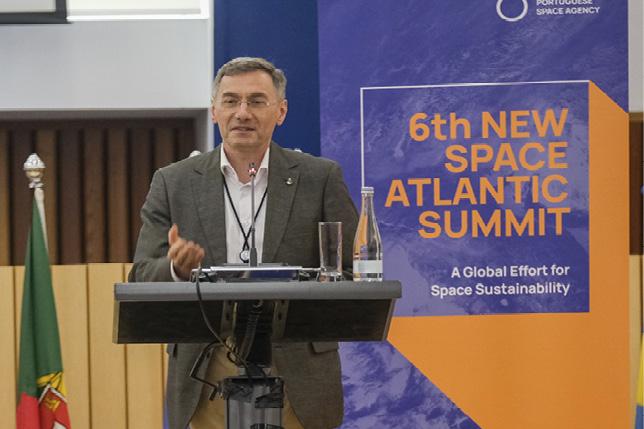 IISL President Kai-Uwe Schrogl participating in the New Space Atlantic Summit in Lisbon, Portugal, on 10 May 2023.
IISL President Kai-Uwe Schrogl participating in the New Space Atlantic Summit in Lisbon, Portugal, on 10 May 2023.
International responsibilities
Space is, and hopefully always will be, characterised as a ‘global common’ governed by freedom of use as well as non-appropriation
So my plea is that we should be appreciative and enthusiastic about the global commons and of expanding their scope rather than reducing or attacking them where they exist. We need more of the global commons in everything we do on Earth, rather than arguing that it’s better for business if we do away with non-appropriation and similar concepts.
The final point is that States have to assume their responsibilities on an international level as well as on a national level. It seems that the reason that we now deplore the bigger low Earth orbit constellations – with their increased potential for debris, increased threat to human spaceflight and the light pollution astronomers are suffering from – is because all this has been ignored in the authorisation processes.
So, this is something that we all have to highlight with the regulators, as well as industry, when we create national space legislation. And we then need to act according to the principles of sustainability. This is the responsibility of the States, but it has to be guided by a general call to maintain outer space as a global common and use it in a sustainable manner.
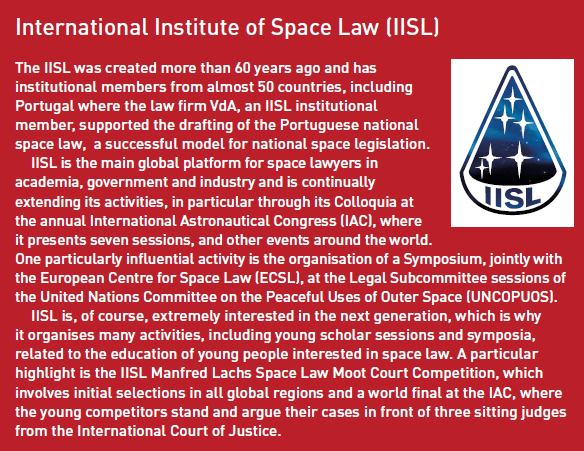
Editor’s note
This article is based on a keynote presentation by Professor Dr Kai-Uwe Schrogl, President of International Institute of Space Law (IISL), to the New Space Atlantic Summit, organised by the Portuguese Space Agency in Lisbon, Portugal, in May 2023.
About the author
Professor Dr Kai-Uwe Schrogl is the Special Advisor for Political Affairs at the European Space Agency (ESA) and the President of the International Institute of Space Law (IISL). From 2014 to 2016, he served as Chair of the Legal Subcommittee of the United Nations Committee on the Peaceful Uses of Outer Space (UN COPUOS). Kai-Uwe Schrogl holds a doctorate degree in political science, lectures on international relations as an Honorary Professor for international technology policy at Tübingen University, Germany, and has written or co-edited 20 books and more than 140 articles and papers in the fields of space policy and law. Between 2007 and 2011 he was the Director of the European Space Policy Institute (ESPI) in Vienna.





